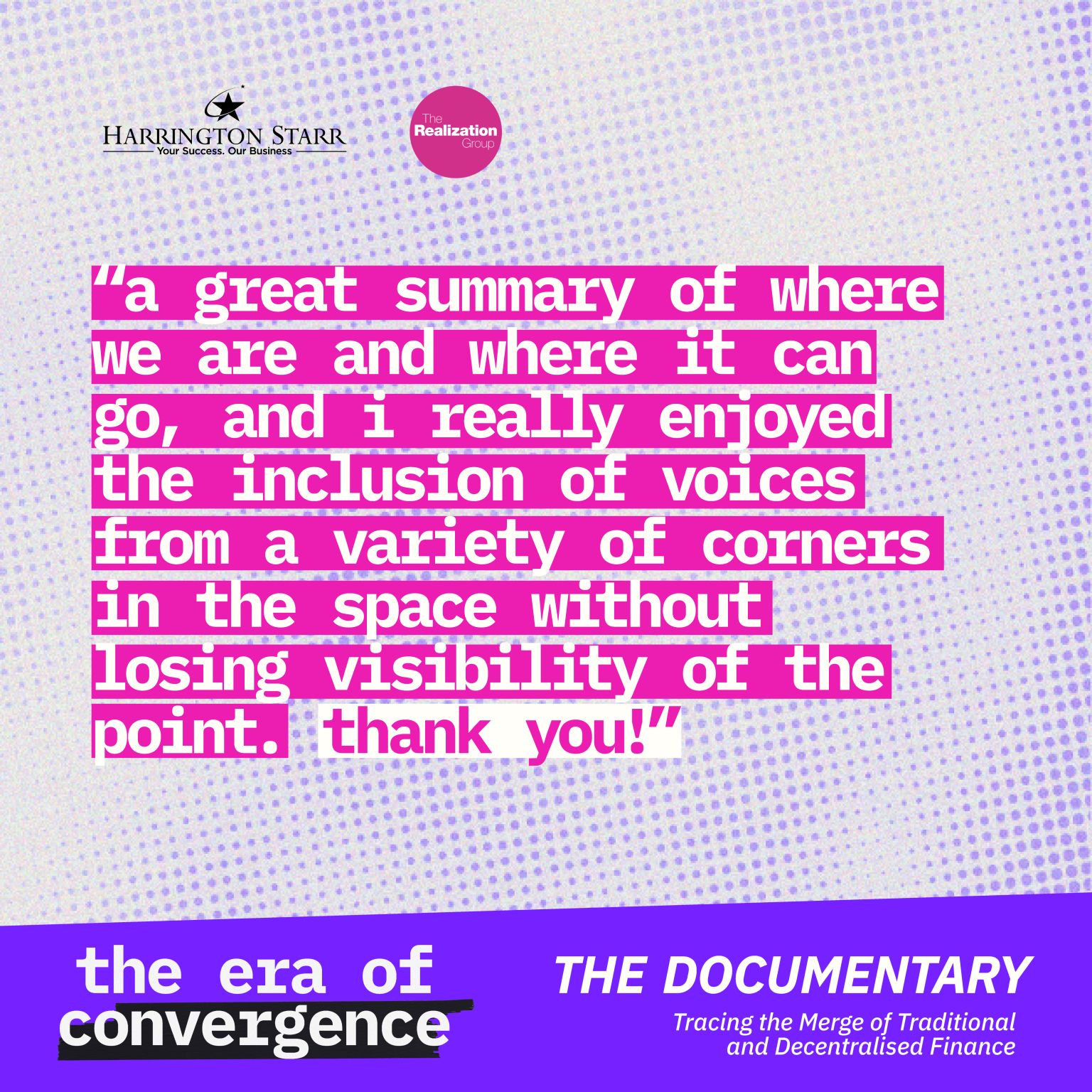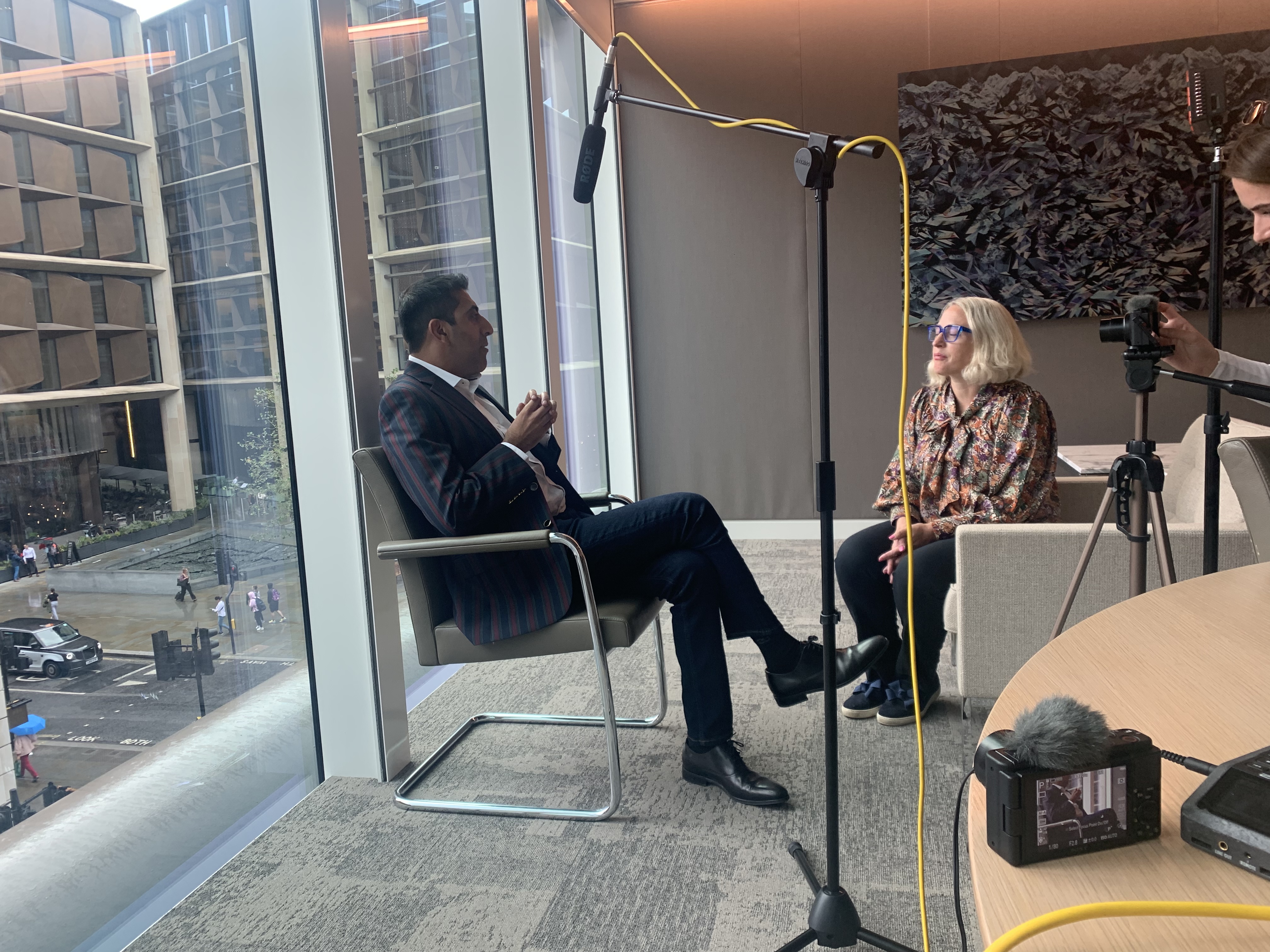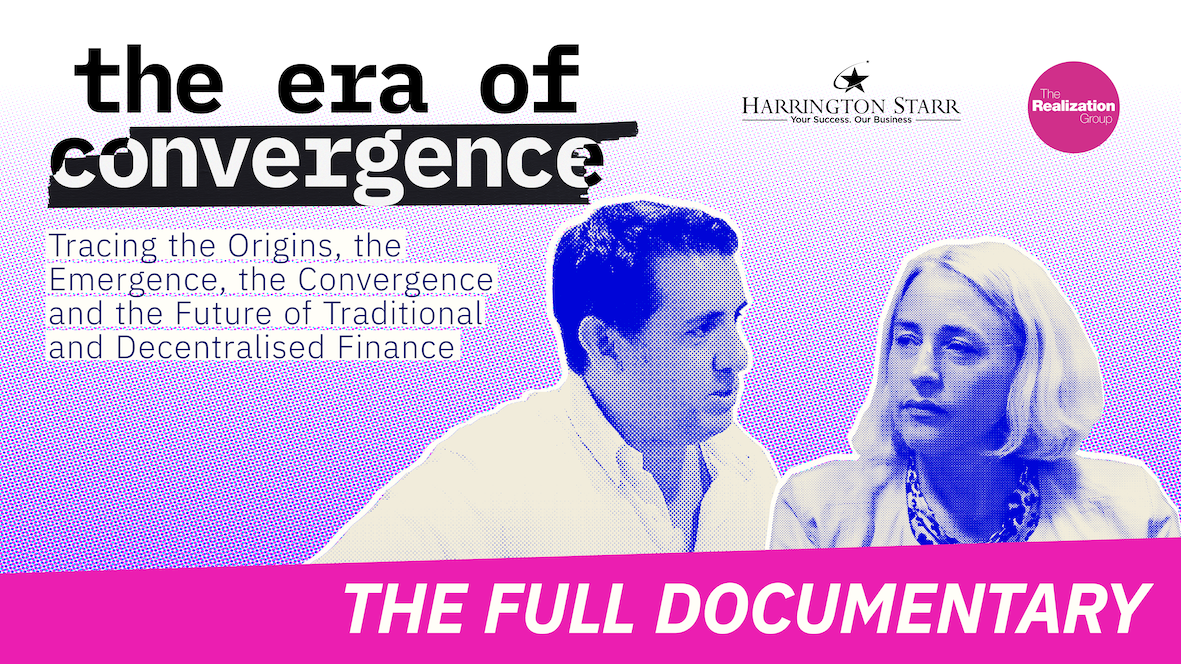

In the evolving landscape of finance, a transformative shift is occurring, bringing together the traditional financial systems and the emerging world of decentralised finance (DeFi). This convergence is not only reshaping how transactions are conducted but also redefining the very essence of financial markets. This documentary delves into the intricacies of this convergence, exploring its origins, current state, and future implications.
The Genesis of Decentralised Finance

The Birth of Bitcoin and Cryptocurrencies
The financial crisis of 2008 marked a turning point in the global financial system. As traditional banks faced unprecedented challenges, a pseudonymous individual or group named Satoshi Nakamoto introduced a revolutionary concept through a white paper titled "Bitcoin: A Peer-to-Peer Electronic Cash System." This document outlined a decentralised form of currency that eliminated the need for banks and middlemen, paving the way for Bitcoin and the broader world of cryptocurrencies.
Bitcoin's introduction was revolutionary, not only because it offered a new form of digital currency but also because it laid the foundation for a decentralised financial system. Over the years, thousands of cryptocurrencies have emerged, each with unique features and benefits, driving waves of innovation in the financial infrastructure.
Blockchain: The Backbone of Decentralised Finance
The core technology underlying cryptocurrencies, blockchain, and distributed ledgers, has become a new trust layer for the internet. This technology has found applications beyond finance, extending into supply chains, energy markets, healthcare, and more. In finance, the concept of tokenising real-world assets and decentralised finance (DeFi) has gained traction, challenging traditional notions of banking and finance.
The Era of Convergence
Traditional Finance Embraces Digital Assets
While the initial goal of cryptocurrencies was to create a form of money operating outside the traditional banking system, traditional financial institutions have recognised the potential benefits of digital assets and blockchain technology. This recognition has led to a convergence where banks and other financial entities are gradually embracing these technologies to modernise their systems and offer new services.
Banks are entering the metaverse, opening digital asset arms, and hiring blockchain and cryptocurrency specialists. This trend signifies a significant shift in how traditional finance views and integrates with the decentralised finance world.
Innovations and Challenges
The era of convergence brings about numerous innovations and challenges. On one hand, blockchain technology promises to streamline financial processes, reduce costs, and increase transparency. On the other hand, the integration of decentralised systems with traditional finance introduces complexities related to regulation, interoperability, and security.
One notable innovation is the development of DeFi applications, which allow for peer-to-peer financial transactions without intermediaries. DeFi platforms offer services such as lending, borrowing, and trading in a decentralised manner, often providing higher returns and greater accessibility than traditional financial institutions.
The Role of Talent in Financial Services Recruitment
As the lines between traditional finance and DeFi blur, the demand for talent with expertise in both areas is growing. Financial services recruitment is increasingly focusing on individuals who understand blockchain technology and digital assets. Similarly, fintech recruitment is seeking professionals who can navigate the complexities of both traditional and decentralised financial systems.
The talent pool for these emerging fields is still relatively small, leading to fierce competition for skilled professionals. Companies are investing in education and training programmes to build a workforce capable of driving innovation in this new era of finance.
The Future of Finance

Digital Currencies and Central Bank Digital Currencies
One of the critical questions facing the future of finance is the role of cryptocurrencies and central bank digital currencies (CBDCs). While some envision a world where cryptocurrencies coexist and interoperate with traditional currencies, others see the potential for CBDCs to become the dominant form of digital money.
CBDCs are digital versions of national currencies issued by central banks. They offer the benefits of digital currencies, such as fast and secure transactions, while maintaining the stability and trust associated with traditional fiat currencies. The integration of CBDCs into the financial system could significantly impact how transactions are conducted globally.
Banking in the Metaverse
The concept of the metaverse, a virtual world where people can interact and transact, is gaining traction. Major financial institutions are exploring opportunities to offer banking services in the metaverse, creating new avenues for customer engagement and financial transactions.
As the metaverse economy grows, estimated to reach trillions of pounds, the integration of digital assets and blockchain technology will be crucial. Banks and financial institutions will need to adapt to this new environment, offering innovative services that cater to the needs of a digitally native population.
The Role of Regulation
Regulation will play a pivotal role in shaping the future of finance. As traditional and decentralised finance converge, regulators face the challenge of creating frameworks that ensure security, transparency, and fairness while fostering innovation. The balance between regulation and innovation will determine how effectively these new financial systems can be integrated and scaled.
The Impact of Technological Advancements
Technological advancements in blockchain, artificial intelligence, and machine learning are poised to further revolutionise the financial industry. These technologies can enhance the efficiency of financial services, improve risk management, and create personalised customer experiences. For example, smart contracts on blockchain platforms can automate complex financial transactions, reducing the need for intermediaries and lowering operational costs.
The Intersection of Traditional and Decentralised Finance
Collaboration and Competition
The convergence of traditional and decentralised finance is characterised by both collaboration and competition. Traditional financial institutions are partnering with fintech companies and DeFi platforms to integrate new technologies and expand their service offerings. At the same time, they are competing with these new entrants for market share and customer loyalty.
This dynamic interplay is driving innovation and pushing both traditional and decentralised finance to evolve rapidly. Financial institutions that can effectively leverage the strengths of both worlds are likely to emerge as leaders in the new financial landscape.
Financial Inclusion and Access
One of the most significant benefits of decentralised finance is its potential to enhance financial inclusion. By removing barriers to entry and providing access to financial services for underserved populations, DeFi can empower individuals and businesses in developing regions. This aligns with the goals of traditional financial institutions that are also seeking to expand their reach and serve a broader customer base.
The Importance of Education and Awareness
As the financial industry undergoes this transformation, education and awareness will be crucial. Financial institutions, regulators, and educational institutions must work together to develop programmes that educate the public about the benefits and risks of decentralised finance. This will help build trust and confidence in new financial technologies and promote their widespread adoption.
The Future Workforce in Finance
Skills and Expertise
The future of finance will require a workforce with diverse skills and expertise. Financial services recruitment and fintech recruitment are increasingly focusing on individuals who possess a combination of technical and financial knowledge. Skills in blockchain technology, data analytics, cybersecurity, and regulatory compliance will be highly sought after.
Moreover, soft skills such as problem-solving, adaptability, and communication will be essential as professionals navigate the complexities of the converging financial landscape. Companies will need to invest in continuous learning and development programmes to keep their workforce up to date with the latest technological advancements and industry trends.
The Role of Universities and Training Institutions
Universities and training institutions have a vital role to play in preparing the future workforce for the era of convergence. By offering specialised courses and programmes in fintech, blockchain, and digital assets, they can equip students with the knowledge and skills needed to thrive in the new financial landscape.
Collaboration between academia and industry will also be important. Internships, mentorship programmes, and industry partnerships can provide students with practical experience and exposure to real-world challenges and opportunities in finance.
The Global Perspective
Regional Differences and Opportunities
The impact of the convergence of traditional and decentralised finance will vary across different regions. Emerging markets, where traditional financial infrastructure may be lacking, stand to benefit significantly from the adoption of DeFi technologies. Countries in Africa, Asia, and Latin America are already witnessing rapid growth in digital asset ownership and usage.
In contrast, developed markets with established financial systems will face different challenges and opportunities. These regions may focus more on integrating DeFi with existing infrastructure, enhancing regulatory frameworks, and fostering innovation through collaboration between traditional and decentralised financial entities.
The Role of International Cooperation
International cooperation will be essential in addressing the global challenges and opportunities presented by the convergence of traditional and decentralised finance. Regulators, policymakers, and industry leaders must work together to develop harmonised standards and regulations that promote innovation while ensuring security and stability.
Global forums and organisations can facilitate dialogue and collaboration, helping to create a cohesive and inclusive global financial ecosystem. This cooperation will be crucial in addressing issues such as cross-border transactions, regulatory arbitrage, and the protection of consumers and investors.

The era of convergence between traditional and decentralised finance marks a significant milestone in the evolution of financial markets. This transformative period is characterised by the adoption of blockchain technology, the rise of digital assets, and the integration of innovative financial services. As financial services recruitment andfintech recruitment focus on building a skilled workforce, the future of finance promises to be more inclusive, efficient, and secure.
The journey of convergence is still in its early stages, and its full impact remains to be seen. However, one thing is certain: the financial landscape is changing rapidly, and those who embrace this change will be well-positioned to thrive in the new world of finance. As traditional and decentralised finance continue to merge, we are witnessing the dawn of a new era that holds immense potential for innovation and growth.
In this new era, the collaboration between traditional and decentralised financial entities will drive the development of a more resilient and adaptable financial system. By leveraging the strengths of both worlds, the financial industry can create a future that benefits individuals, businesses, and economies worldwide. The era of convergence is not just a passing trend; it is the beginning of a profound transformation that will shape the future of finance for generations to come.











